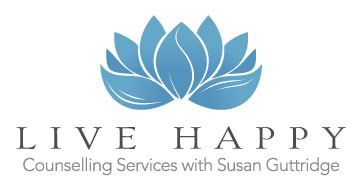“Judgments prevent us from seeing the good that lies beyond appearances.” — Wayne Dyer  Children have beautiful intentions. As adults, it can be very easy to lose sight of these intentions. We can get caught up in our day at work, in our household chores, in bills that need to be paid, in family issues, and in our own (sometimes unresolved) experiences. When we are “stuck in our heads” we lose sight of the present moment. For example, we interpret our children as being messy when they are actually being creative, or as getting in our way when they are trying to be helpful. A very poignant example of this very notion was shared with me recently while working with a 66 year old woman (I will refer to her as Jen in order to protect her privacy). Jen described to me a story of when she was young – just 6 years old. She told me that her mother had the most beautiful flowers growing in the garden. Jen would love to sit among the flowers, most of which were taller than she was when she sat. As she sat by the flowers, she would imagine herself living in a field all of flowers. The image was calming and safe for her, and she would spend hours sitting among the flowers. One summer day, Jen’s mother had been cleaning the house and Jen had wanted to help. She saw her mother working hard and noticed how beautiful the house was becoming. Jen described offering to help her mother, but that her mother had been too busy to attend her. Still full of admiration for her mother and wanting to help, Jen went out into the garden, and selected a few of her favorite flowers – thinking of how lovely they would look on the kitchen table. Jen pulled the flowers and brought them into the house. She found a vase and began filling it with water. At that moment, Jen’s mother entered the room: her mother noticed only the plucked flowers, root and all, and a clump of dirt muddying her freshly washed floor. Jen was in trouble and the flowers were thrown in the trash. Jen’s beautiful intention to help her mother went unnoticed. What an impact this mother’s actions had on her young daughter – so much so in fact, that at age 66 Jen recalls every detail of the experience and it still brings tears to her eyes. Our children have beautiful intentions. Depending on their age, they might not know fully how to help. For example, Jen did not know she needed to cut the flowers and leave the root in the ground – her intention was solely to help. Consider the intentions behind your children’s action – and attend to the intention. Then teach the appropriate behaviour. Grasp hold of the teachable moment and use it to bolster your child’s self-esteem. Use the comments to share any of your examples of when you been successful at noticing the intention in your children’s behaviour. “If you judge people, you have no time to love them” This article was originally posted on July 31 2012, to Happy Parents = Happy Kids (focusedonparenting.wordpress.com) by Susan Guttridge
0 Comments
|
AuthorSusan Guttridge is a trauma-informed Master level Counsellor with the clinical designation of Canadian Certified Counsellor (CCPA). She has 20+ years experience providing individual and group therapy. Archives
January 2024
Categories
All
|

 RSS Feed
RSS Feed